| | | | | | | Presented By OurCrowd | | | | Axios Future | | By Bryan Walsh ·Nov 04, 2020 | | Welcome to Axios Future, where we hope election forecasters are reflecting on a quote often attributed to the Danish physicist Niels Bohr: "Prediction is very difficult, especially if it's about the future." Today's Smart Brevity count: 1,773 words or about 7 minutes. | | | | | | 1 big thing: The Disunited States | 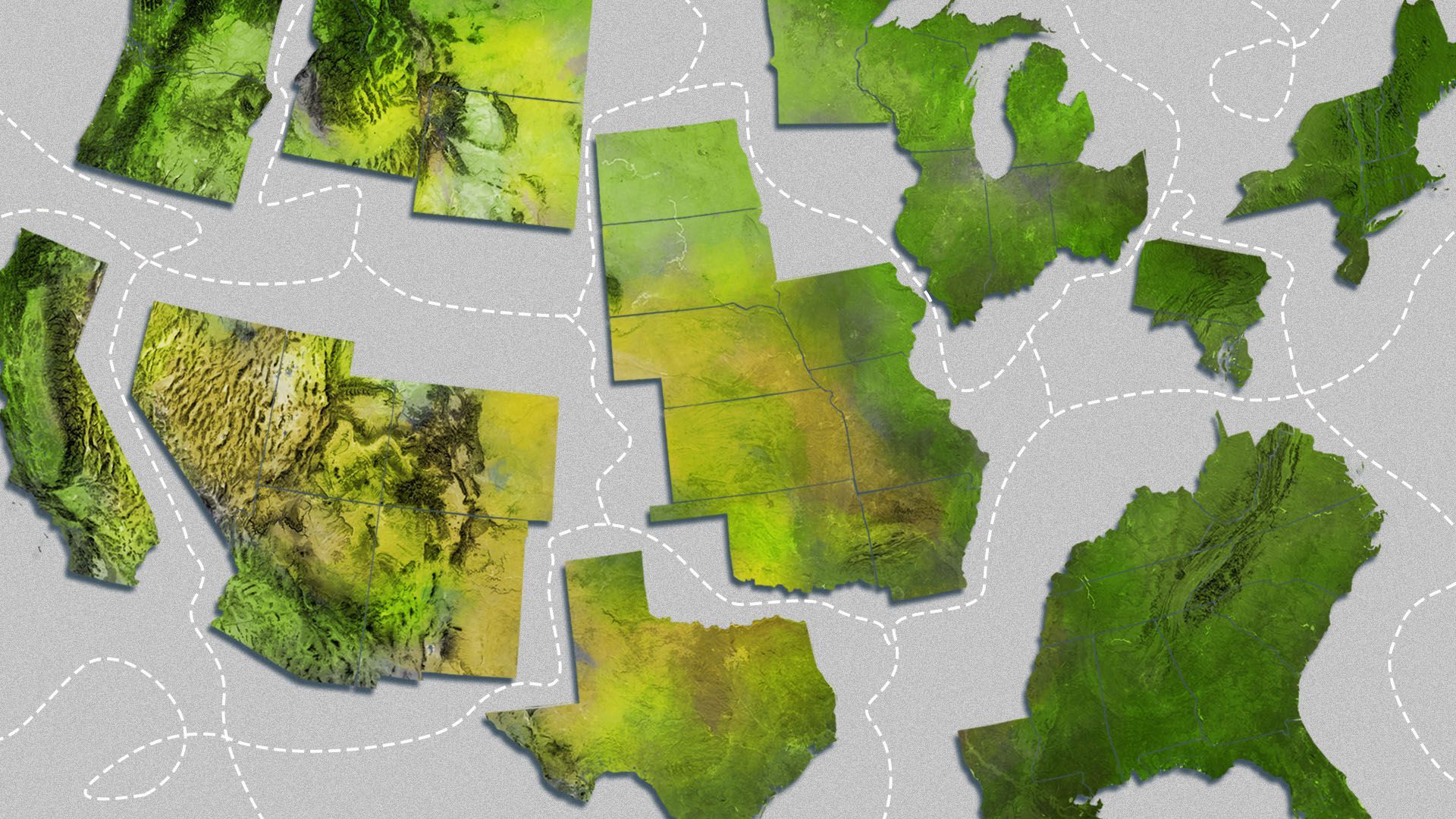 | | | Illustration: Sarah Grillo/Axios | | | | Whatever the final outcome of the U.S. presidential election is, it is unlikely to alter long-running political and cultural divides within the country. Why it matters: America has faced worse divisions in the past and survived — at great cost — but with polarization set to deepen over time, the country could face paralyzing political sclerosis or even calls for secession, two recent books argue. - "There is not a single important cultural, religious, political or social force that is pulling Americans together more than it is pushing us apart," writer David French notes in his new book "Divided We Fall: America's Secession Threat and How to Restore Our Nation."
Driving the news: Almost half of the U.S. is likely to feel betrayed by the result of the 2020 presidential election. The only question still to be decided as the final votes are tabulated is which half it will be. - That continues a trend of ever more extreme polarization that dates back to the 1990s.
- If Democrats continue to congregate in heavily populated metropolitan areas as projected, the American political system's skew toward rural areas and states would only grow, so much so that by 2040, 70% of Americans could live in just 15 states, giving them a voice in just 30% of the Senate.
One possible outcome: French — an anti-Trump conservative — argues that America's divisions are so great, and our political system so poorly designed to handle them, that secession may eventually be the result. - "If we keep pushing people and pushing people and pushing people, you cannot assume that they won't break," he told Business Insider in a recent interview.
Yes, but: Actually executing secession would be dizzyingly difficult in a country as economically interwoven as the U.S., and while our ideological divisions are indeed extreme, they don't always run evenly along state borders. Context: We associate secession with Confederate states and the Civil War, but "almost everybody at one time or another in every different part of the country has considered the idea of breaking up," says Richard Kreitner, the author of "Break It Up: Secession, Division, and the Secret History of America's Imperfect Union." - After the 2012 election, secession petitions were launched in all 50 states, with campaigns in six states receiving enough signatures to require a response from the U.S. government.
- In his book, French plays out two plausible secession scenarios: one involving Democratic West Coast states leaving the union over gun laws, and the other involving Republican Southern states led by Texas seceding because of abortion laws.
- What both scenarios have in common is a sense among citizens of the seceding states that the opposing party that controls the national government is an existential threat that can no longer be combated through electoral politics.
Of note: The electorate did become somewhat less racially polarized in 2020, mostly due to Republicans making some gains with Black and Latino voters. - And Americans seem more mixed ideologically than their landslide partisan voting might suggest, with voters in Florida going for both Trump and a $15 minimum wage, and liberal Californians supporting a ballot initiative that exempts ride-sharing drivers and app delivery workers from being classified as employees.
The other possible scenario: A state of gridlock should the White House and Congress be consistently split between political parties. - Instead of secession, the U.S. becomes what historian Sanford Levinson has called "the sick man of the West," aware of the needed reforms but unable to execute them because of political sclerosis.
The bottom line: While all eyes are still on the vote, yesterday's election isn't a cause of this deep divide, but rather a consequence of it. Whatever the ultimate result, divisions between Americans will keep growing — until one day, perhaps, we reach a breaking point. |     | | | | | | 2. Air pollution connected to higher COVID-19 death rates | 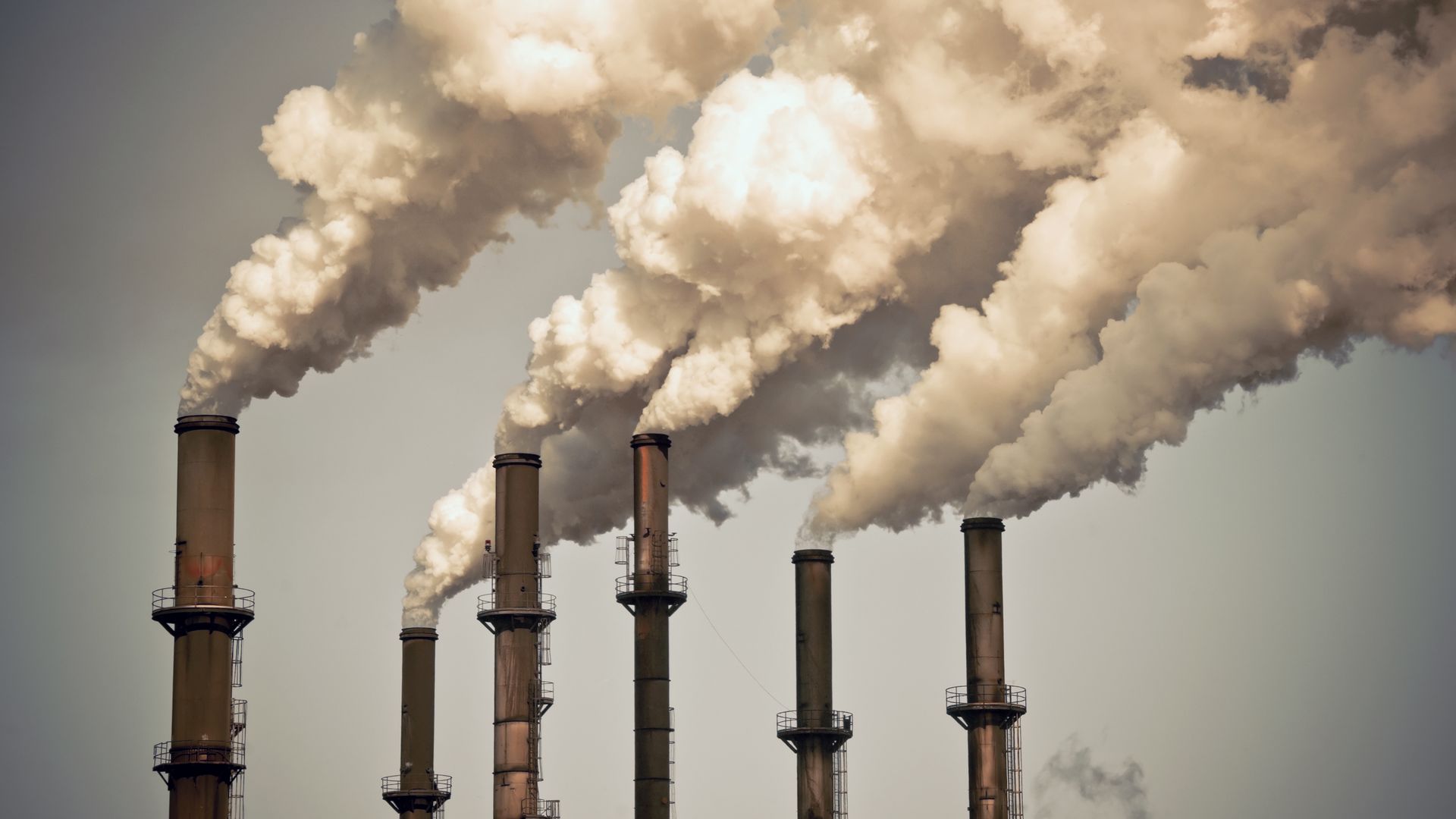 | | | Smokestacks in Florida. Photo: Getty Images | | | | A new study of more than 3,000 counties in the U.S. finds a correlation between higher levels of particulate air pollution and higher death rates from COVID-19. Why it matters: COVID-19 may be caused by the novel coronavirus, but the outcome of an infection is influenced by everything from age to race to the environment. Understanding the connection between disease and pollution can help us address those risks going forward. By the numbers: In a study published today in Science Advances, researchers from the Harvard T.H. Chan School of Public Health found every increase of one microgram of fine-particle air pollutants at the county level was associated with an 11% increase in that county's COVID-19 mortality rate. - That result echoes earlier preprint research by the same team from the earliest weeks of the pandemic showing that air pollution was connected to worse outcomes from COVID-19.
The catch: The researchers caution that because individual-level data on COVID-19 outcomes for large, representative populations doesn't yet exist, it's difficult to be certain that air pollution is connected to coronavirus deaths. - People who live in areas with high levels of air pollution are also more likely to be poor and Black — two factors also associated with higher levels of COVID-19 death rates.
Yes, but: As Jeremy Jackson and Kip Hodges point out in an accompanying editorial, science has clearly established air pollution is a risk factor for death from cardiovascular and pulmonary diseases, which perfectly describes COVID-19. - Threats from new diseases "are likely to be exacerbated by air pollution, even at the levels currently attained in the United States despite conscientious efforts to improve air quality," Jackson and Hodges write.
The bottom line: We now understand the novel coronavirus can be airborne, and so are the air pollutants that appear to make the disease that much worse. |     | | | | | | 3. Bioprinting living tissue | 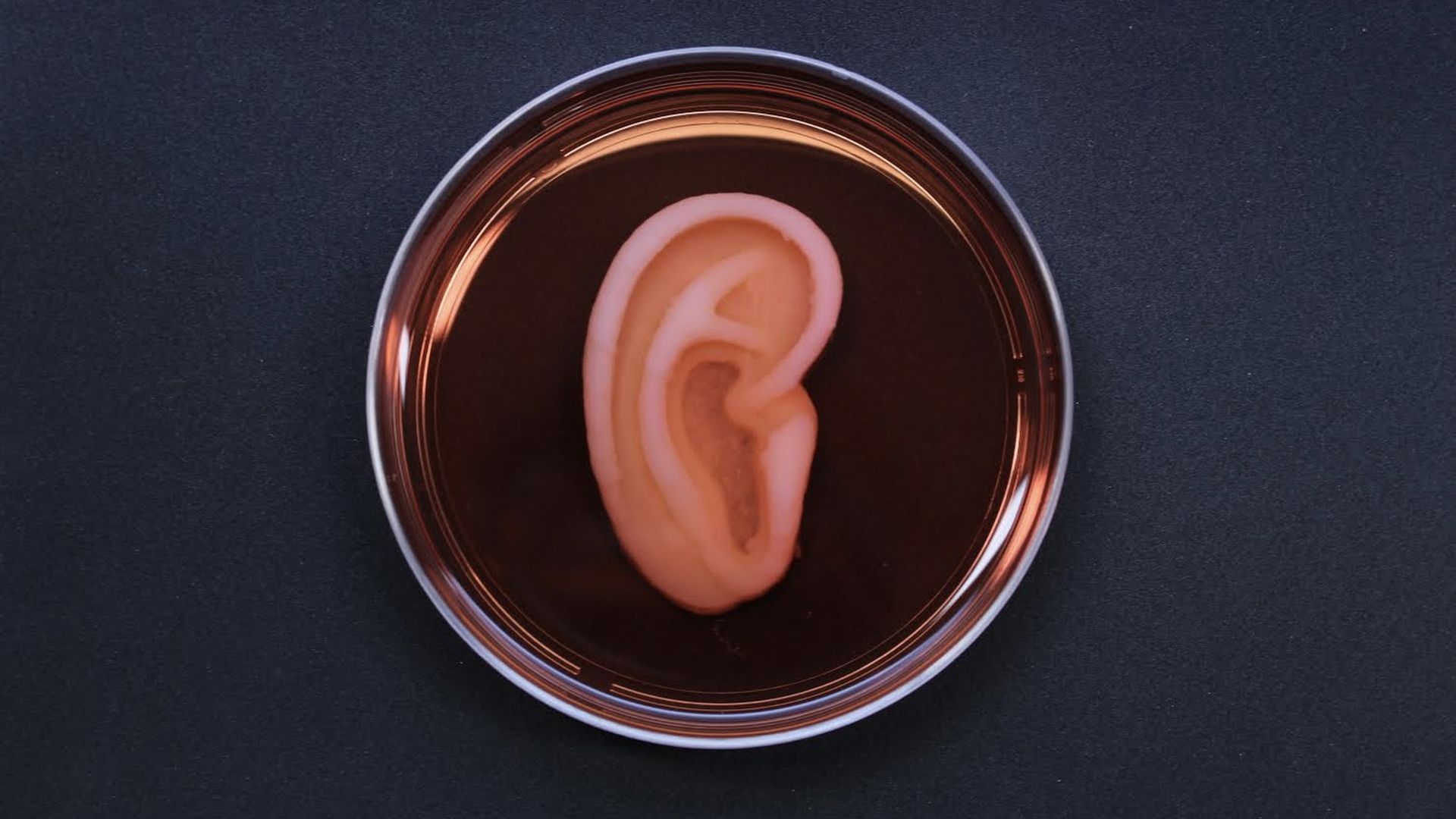 | | | Living ear tissue bioprinted by 3DBio Therapeutics. Photo: 3DBio Therapeutics | | | | A startup is applying for clinical trials of its method of 3D bioprinting living ear cartilage tissue that could be transplanted onto patients. Why it matters: 3DBio Therapeutics' product will make a difference for thousands of children born with a rare congenital deformity, but it also demonstrates the way forward for the precise manufacturing of tissue for implantation and other medical products. Background: Children born with microtia — which occurs in roughly 1 out of every 5,000 births — never fully develop their outer ear, which is mostly cartilage. The most commonly used surgical treatment involves removing cartilage from the ribs and sculpting it into a framework shaped like an ear. - But that can involve multiple surgeries under anesthesia for young children, which is painful and has "aesthetic results that are very limited," says Dan Cohen, c0-f0under and CEO of 3DBio Therapeutics.
How it works: Using a therapeutic-grade bioprinter — a form of 3D printing that can produce tissue using bio-ink, rather than liquid plastic or metal — 3D therapeutics can print out living, ear-shaped tissue. - The bio-ink is seeded with the patient's own ear cartilage cells, and the final product is matched in shape for implantation.
- "You don't have to carve out a child's ribs, and you don't have inpatient nights in the hospital," says Cohen. "It can be a streamlined, outpatient procedure."
What's next: 3DBio Therapeutics has received orphan drug and rare pediatric disease designations from the FDA for its ear cartilage bioprinting treatment, which should speed its application for clinical trials. The bottom line: The field of bioprinting is growing, and it could advance to the point of producing personalized organs to replace body parts as they wear out. |     | | | | | | A message from OurCrowd | | OurCrowd creates pre-IPO investment opportunities for you | | | 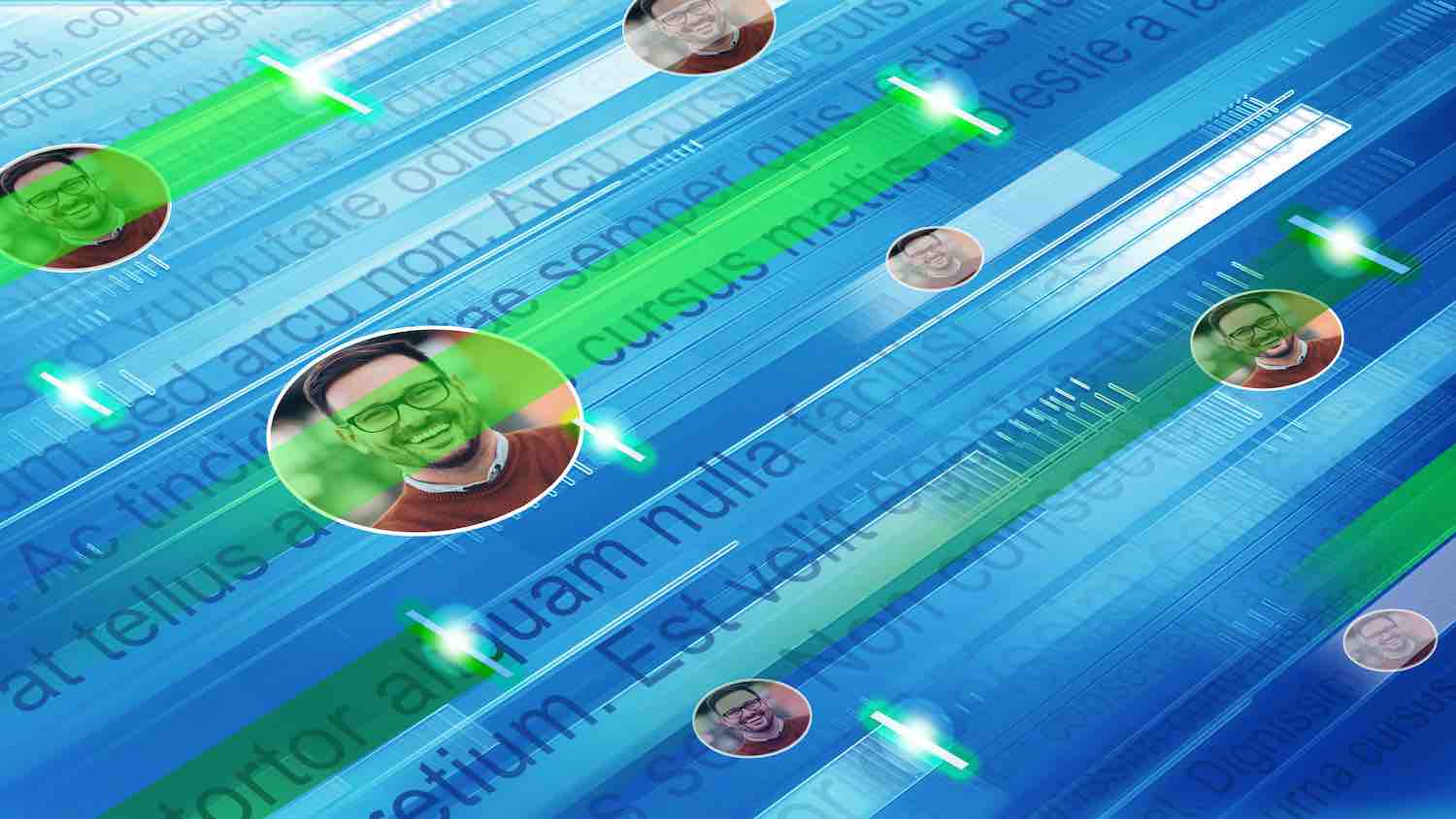 | | | | Today, OurCrowd members can invest in Cyabra. As disinformation becomes increasingly threatening to global brands, media and governments, Cyabra reports that it's uniquely positioned to serve this potential $6.1 billion market. Interested in investing? Join OurCrowd. | | | | | | 4. California passes gig economy ballot measure | 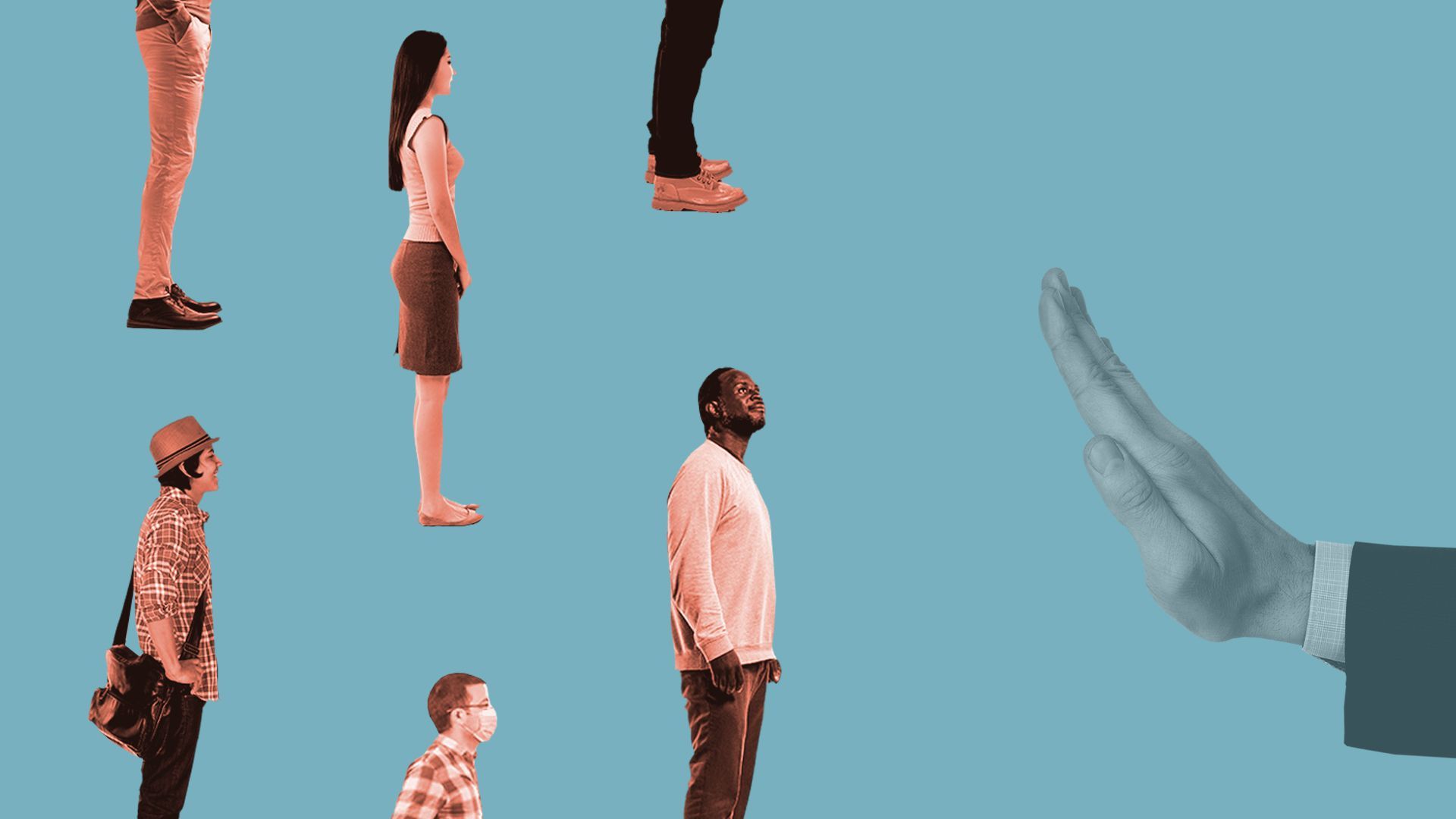 | | | Illustration: Annelise Capossela/Axios | | | | California's Proposition 22, the ballot measure backed by gig companies like Uber, Lyft, Instacart and DoorDash to cement their drivers' status as independent contractors, passed easily Tuesday, my Axios colleague Kia Kokalitcheva reports. The big picture: The companies put about $200 million behind the measure after a new state law went into effect in January aimed at forcing them to classify their drivers as employees. By the numbers: About 58% of California voters approved in favor of the measure, per the California Secretary of State's Office. - Polls in recent months showed a slight lead for the "Yes" campaign and a lot of undecided voters.
- The opposition only raised just under $20 million, mostly from unions.
Of note: This proposition is hard to undo or change. - It includes a provision that requires seven-eighths of the state legislature to amend the law — and any change has to be consistent with the proposition's original purpose.
- Any other kind of change would require another ballot measure.
Meanwhile: Californians also voted to approve Prop. 24, meant to strengthen California's first-in-the-nation online privacy law. The measure ends certain compliance loopholes and establishes funding to stand up a new agency to enforce the law. - They voted down Prop. 21, which would have let local governments expand rent control laws, aimed in part at easing the Bay Area's housing crunch.
Go deeper: The gig economy is on the ballot |     | | | | | | 5. Worthy of your time | | Algorithms are making economic inequality worse (Matt Walsh — Harvard Business Review) - A trenchant article argues that an economy organized by algorithm could be one where it becomes impossible to rise from humble beginnings.
Three ideas on how to live a fuller life (Roman Krznaric — BBC Future) - Coming to terms with the reality of time — and even death — can help us better enjoy the life we have.
Hurricane path forecasts have much improved. Are they as good as they can get? (Alejandra Borunda — National Geographic) - Modern weather forecasting is an astounding achievement that has saved countless lives, but we may be reaching the edge of our ability to predict storms.
AI pioneer Geoff Hinton: "Deep learning is going to be able to do everything" (Karen Hao — MIT Tech Review) - An interview with the scientist who made modern AI possible, on what his invention will ultimately do.
|     | | | | | | 6. 1 religion thing: The Pope asks for good AI | 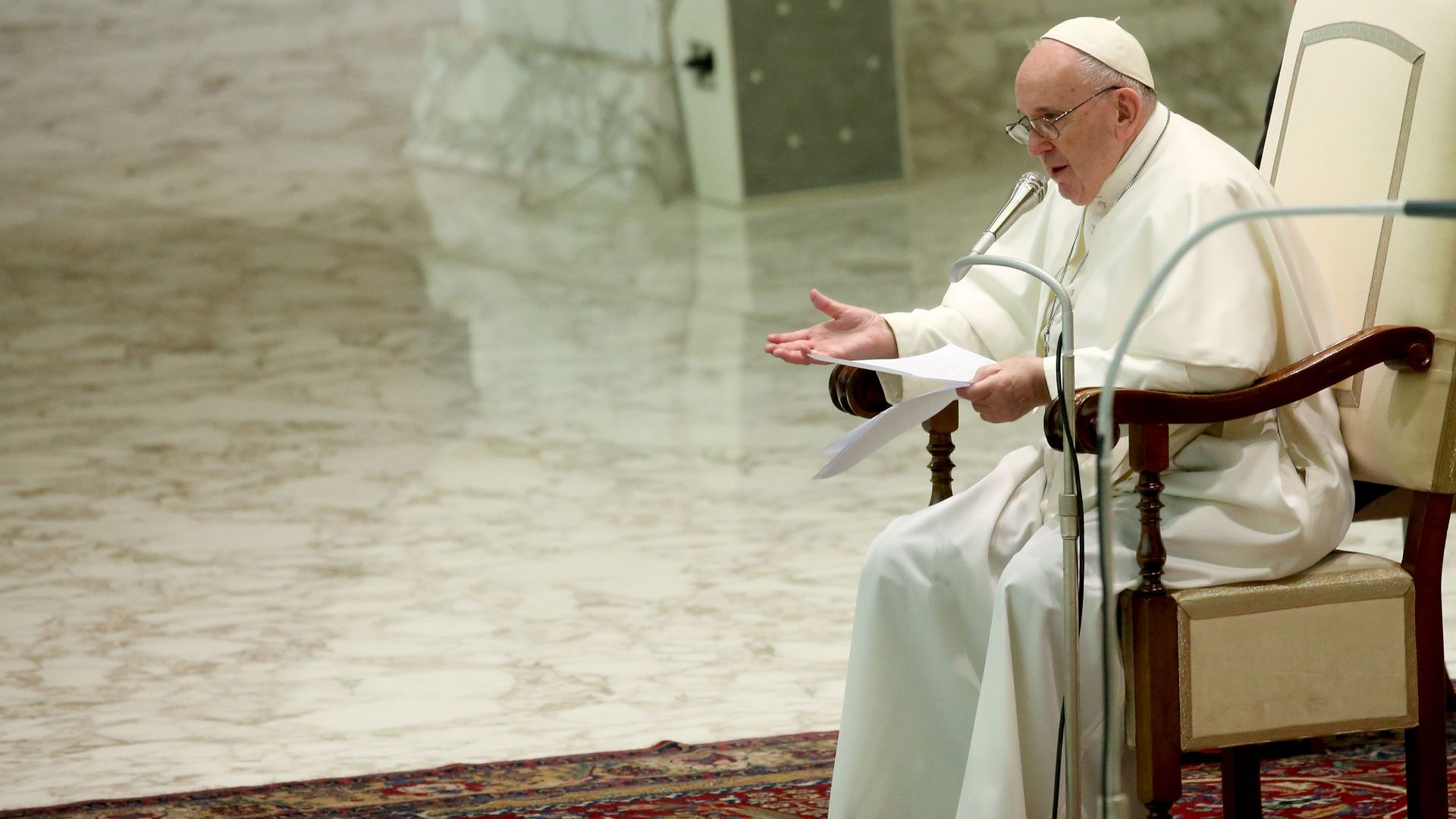 | | | Pope Francis at his weekly general audience at the Vatican on Oct. 28. Photo: Franco Origlia/Getty Images | | | | For his monthly intention in November, Pope Francis prayed that AI will be beneficial for humanity. Why it matters: It's up for debate whether the development of automation and AI will ultimately be good for humankind, and it can't hurt to have a little divine intervention on our side. What he's saying: "We pray that the progress of robotics and artificial intelligence may always serve humankind," reads Francis' intention for November, which is published each month by the Pope's Worldwide Prayer Network. Background: This isn't the first time Francis has ventured into the fraught territory of AI ethics and alignment. - In February, the Vatican hosted executives from IBM and Microsoft for a summit on "human-centered" ways of designing AI.
- They formulated the "Rome Call for AI Ethics," which called for AI to be designed with a focus on the good of the environment and "our common and shared home and of its human inhabitants."
- In his own comments after the summit, Francis warned accurately that AI could worsen economic inequalities, but he also put his hope in the "immense potential that new technologies offer."
The other side: While we may want AI to "serve humankind," that servitude could get tricky should we ever develop fully conscious machines that can think, feel and perhaps even believe. - "If you create other things that think for themselves, a serious theological disruption will occur," Wired co-founder Kevin Kelly told The Atlantic in 2017.
The bottom line: Given that at least a few people in Silicon Valley want to go straight to worshipping AI as a god, at least the Pope is getting ahead of the possible competition. |     | | | | | | A message from OurCrowd | | VC in on successful IPOs of 2019 and 2020 launches pandemic fund | | | 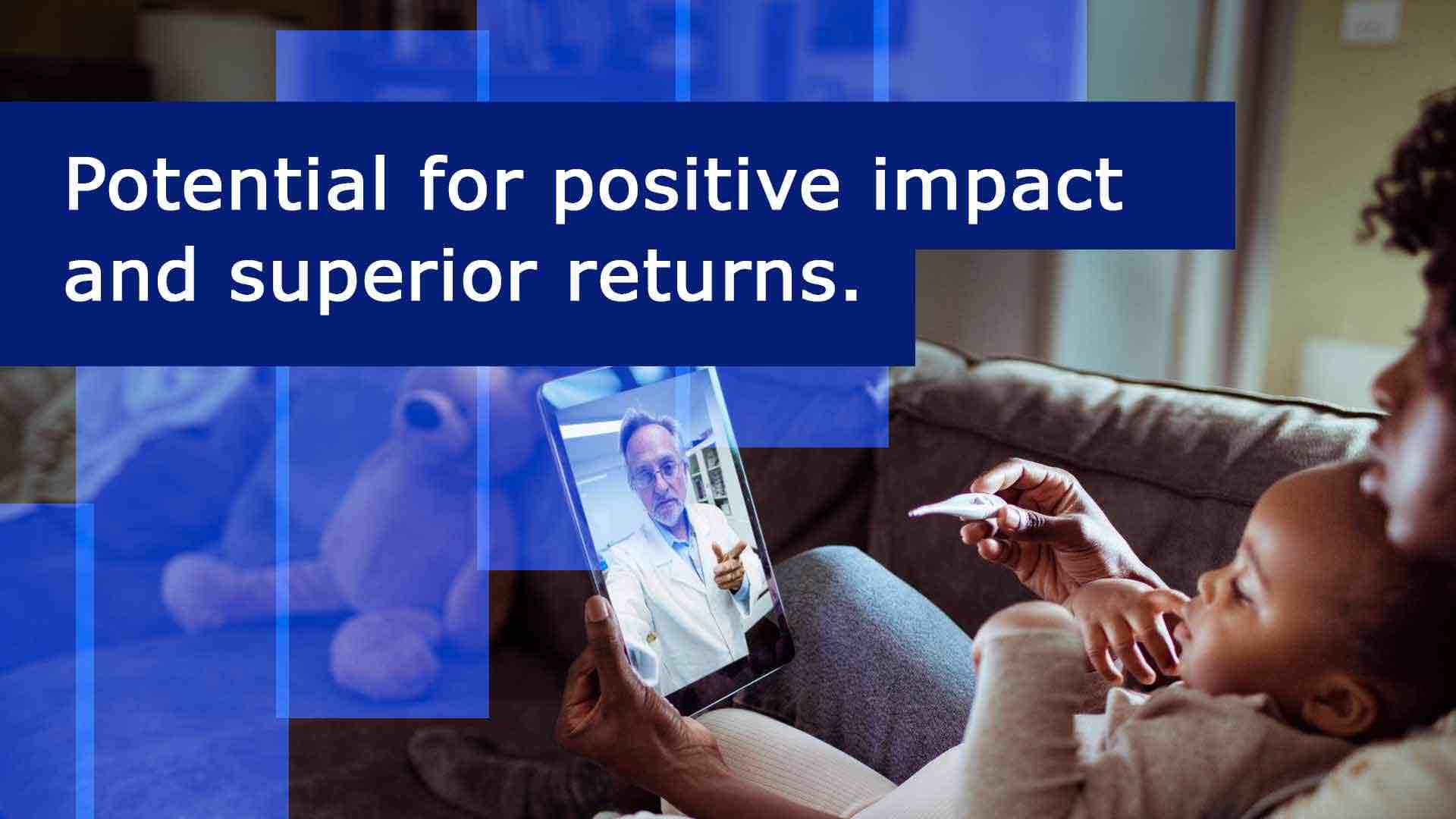 | | | | OurCrowd's Pandemic Innovation Fund. The idea: From communication companies adapting to the new normal to med-tech to food security solutions, the fund's investments have potential for positive impact and superior returns. If you're interested in investing, you need to join OurCrowd. | | | | | | Axios thanks our partners for supporting our newsletters.
Sponsorship has no influence on editorial content. Axios, 3100 Clarendon Blvd, Suite 1300, Arlington VA 22201 | | | You received this email because you signed up for newsletters from Axios.
Change your preferences or unsubscribe here. | | | Was this email forwarded to you?
Sign up now to get Axios in your inbox. | | | | Follow Axios on social media:    | | | | | |









No comments:
Post a Comment